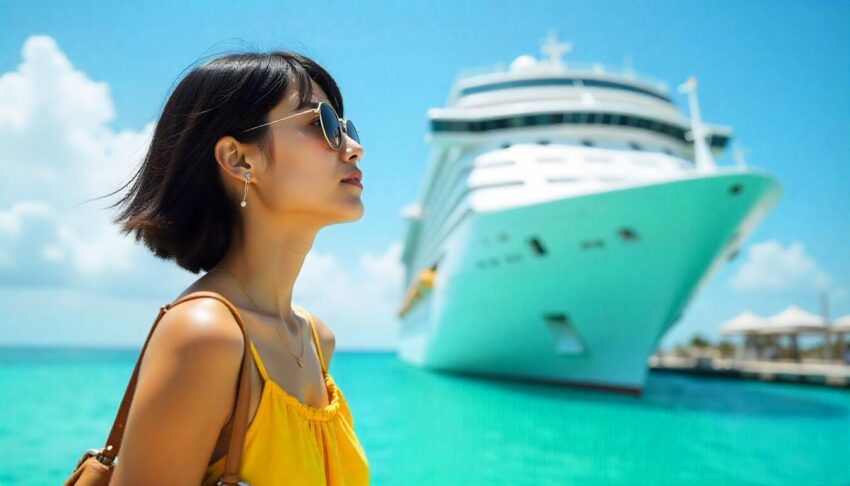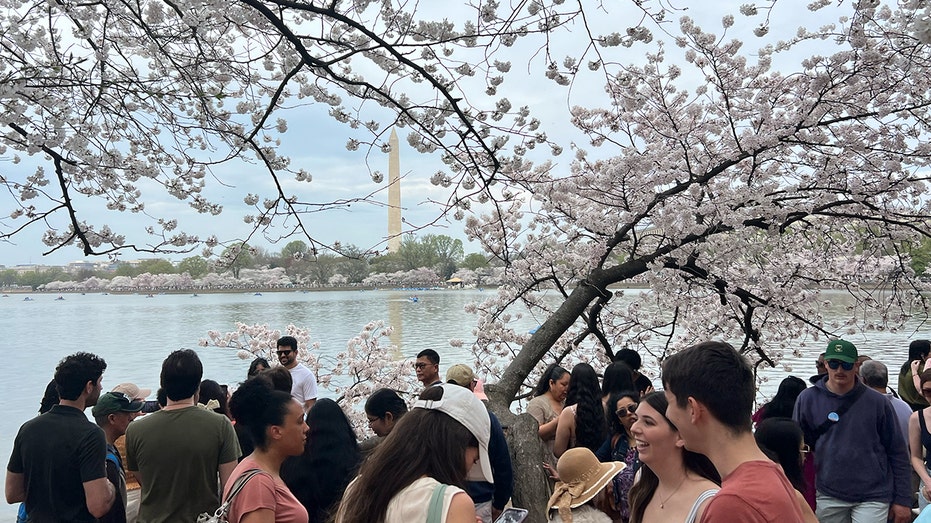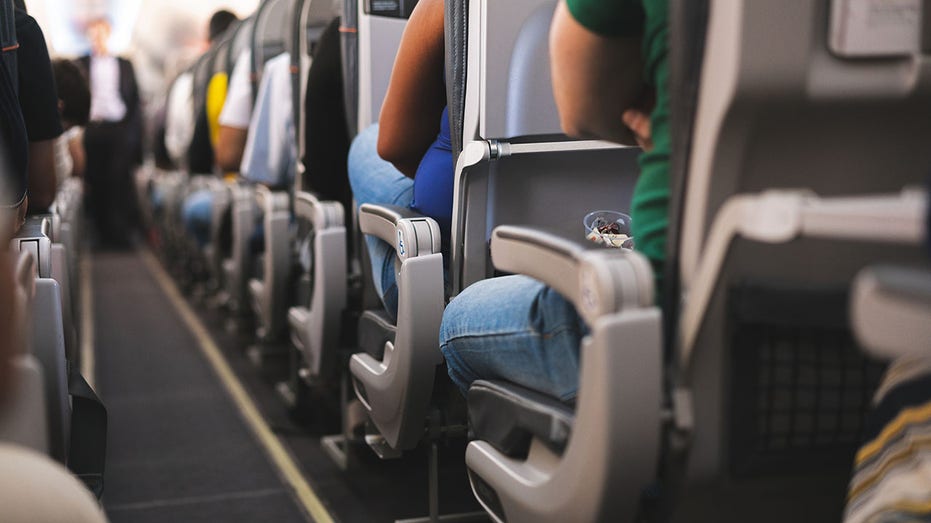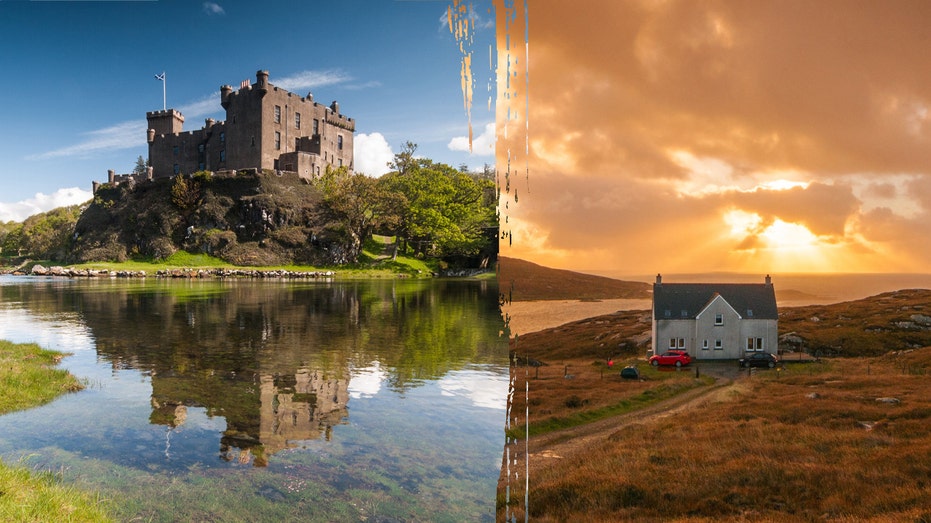- by foxnews
- 31 Mar 2025
Why Are US, Italy, Netherlands, Spain, Mexico, French Polynesia, and France Implementing Cruise Travel Restrictions? New Report You Need to Know Before Planning Your Trip
US, Italy, Netherlands, Spain, Mexico, French Polynesia, and France are implementing cruise travel restrictions in response to growing concerns about the negative impacts of mass tourism. These countries are taking action to combat overcrowding, reduce environmental damage, and protect local communities from the strain caused by large cruise ships. As cruise tourism continues to rise, these nations are introducing new regulations to safeguard their ecosystems, cultural heritage, and residents' quality of life. Travelers should be aware of these changing rules when planning their trips to ensure a sustainable and enjoyable experience.
- by travelandtourworld
- 24 Mar 2025
- in travel

US, Italy, Netherlands, Spain, Mexico, French Polynesia, and France are implementing cruise travel restrictions in response to growing concerns about the negative impacts of mass tourism. These countries are taking action to combat overcrowding, reduce environmental damage, and protect local communities from the strain caused by large cruise ships. As cruise tourism continues to rise, these nations are introducing new regulations to safeguard their ecosystems, cultural heritage, and residents' quality of life. Travelers should be aware of these changing rules when planning their trips to ensure a sustainable and enjoyable experience.
Cruising has rapidly become one of the most popular segments of the global travel industry. With cruise bookings rising by 17% in North America between 2019 and 2023, the demand for cruises continues to surge. The global cruise industry is expected to grow at least 10% between 2024 and 2028, with many major cruise lines constructing new ships to meet demand. However, despite this growth, not every community is thrilled with the influx of cruise tourists.
In the U.S., several ports are adopting new policies to limit the number of cruise tourists, aiming to reduce overcrowding and minimize the impact of tourism on local communities. Sitka, Alaska, is set to hold a special election on May 30, 2025, to determine whether to cap the number of daily cruise arrivals at 4,500. Meanwhile, Juneau, another Alaskan port, has already implemented restrictions, limiting the number of visitors to 16,000 daily, with a reduction to 12,000 on Saturdays.
The latest town to impose significant restrictions is Belfast, Maine. With a population of just 7,000 residents, Belfast voted in November 2022 to limit the number of cruise guest arrivals to 1,000 per day. But in a move to protect local interests further, on March 18, 2025, Belfast passed an amendment banning all commercial passenger ships that accommodate more than 50 guests from docking at the city landing or any other city property or marine facility. This new rule also applies to ships using tender boats. The decision came after local residents voiced concerns about the negative effects of cruise tourism on their quality of life. The harbormaster supported the move, citing safety and navigation challenges that emerged in the summer of 2024 when eight cruise ships visited the port. The resulting congestion around the harbor, including limited dock space and bus parking for shore excursions, prompted the local government to take action.
Following this shift, American Cruise Lines, which typically operates small ships carrying between 90 to 180 passengers, will no longer include Belfast on its itineraries for summer 2025. The 100-passenger American Eagle, which had previously called on Belfast, will be prohibited from docking there as well.
In the Netherlands, Amsterdam has become one of the first major cities to address the challenge of overtourism by limiting cruise tourism. Starting in 2026, the city plans to reduce the number of cruise ship calls to just 100 per year, down from the current 190. By 2035, the main cruise terminal in Amsterdam will be relocated outside the city center, significantly reducing the impact of large vessels on the historic heart of the city.
In Spain, Palma de Mallorca, a popular Mediterranean destination, has implemented a five-year agreement to limit the number of cruise ships arriving daily. The agreement restricts daily cruise arrivals to three ships, with only one vessel allowed to carry more than 5,000 passengers. This initiative aims to curb the environmental impact of large cruise ships and to manage the strain placed on local infrastructure during peak tourism seasons. By keeping these restrictions in place, Palma de Mallorca is ensuring a more sustainable and manageable tourism model.
Bora Bora, an idyllic island in French Polynesia, has been facing similar pressures from mass tourism, and it has introduced limits on cruise arrivals to preserve its natural environment. Starting in 2022, Bora Bora began limiting cruise ship calls to 1,200 passengers per day. This cap was introduced to protect the island's lagoon and reduce the strain that large numbers of tourists could place on the local resources. Bora Bora's decision is part of a growing trend of destinations implementing sustainability measures to ensure long-term preservation of their natural wonders.
France is also at the forefront of cruise tourism regulation. In Marseille, the opposition to cruise tourism has been growing due to concerns about the environmental impact of large ships. Guillaume Picard, an environmental activist, has been vocal about the damage cruise ships cause to marine ecosystems, leading to increased calls for regulation.
In Nice, Mayor Christian Estrosi proposed a ban on cruise ships longer than 190 meters and those carrying more than 900 passengers. The proposed law aims to reduce the number of cruise passengers by 70%, addressing concerns about pollution and the influx of tourists with lower spending power.
Meanwhile, The Hague in the Netherlands has made headlines for becoming the first city to legally ban advertisements promoting fossil fuels, including those for cruise ships. This ban is part of a larger initiative to combat climate change and reduce the carbon emissions associated with tourism, marking a significant step toward sustainable travel.
The United States, Italy, Netherlands, Spain, Mexico, French Polynesia, and France are implementing cruise travel restrictions to combat overcrowding, protect local communities, and preserve fragile ecosystems from the negative impacts of mass tourism.
As cruise tourism restrictions continue to take hold in these key destinations, travelers planning their next cruise should be aware of the evolving regulations. Many destinations are limiting or banning large cruise ships to protect their communities and environments from over-tourism and pollution. As a result, travelers may find certain ports no longer on their itineraries, or cruise lines may adjust routes to comply with new rules.
- by foxnews
- descember 09, 2016
Travel do's and don'ts for DC cherry blossom season amid peak blooms: 'Pack your patience'
Peak bloom has been reached for the cherry blossom trees in Washington, D.C., as millions of travelers and tourists arrive. A National Park Service ranger shared tips for seeing the blooms.
read more




